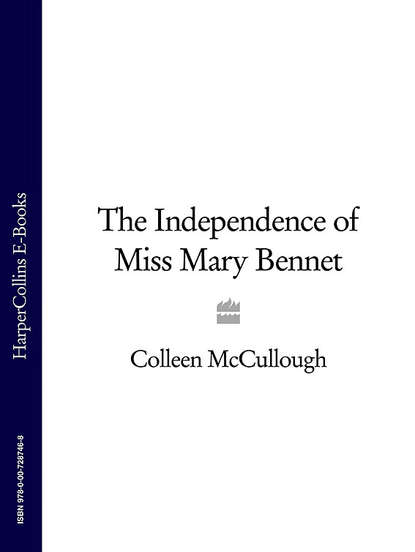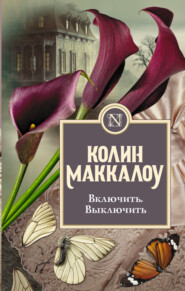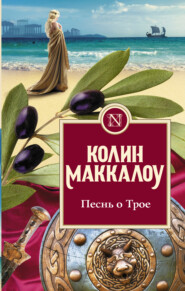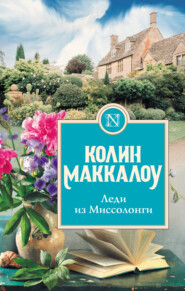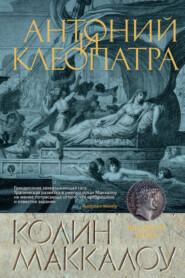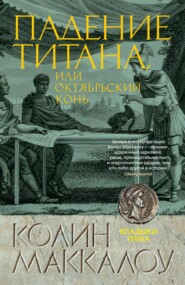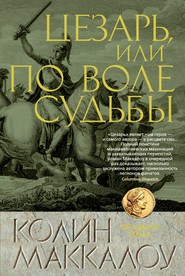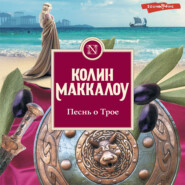По всем вопросам обращайтесь на: info@litportal.ru
(©) 2003-2024.
✖
The Independence of Miss Mary Bennet
Настройки чтения
Размер шрифта
Высота строк
Поля
“So I must congratulate you?” Angus asked, feeling a twinge of excitement. If Miss Bennet had elicited a proposal of marriage from this well set up and prosperous young man, then she could not be either skinny or hatchet-faced.
“Lord, no!” cried Mr Wilde, laughing ruefully. “She refused me. Her affections are reserved for a name in your own journal, Mr Sinclair. She can dream of no one save Argus.”
“You do not seem cast down.”
“Nor am I. Time will cure her of Argus.”
“I am well acquainted with Mrs Darcy, also with another of her sisters, Lady Menadew. The most beautiful of women!” Angus exclaimed, throwing a lure.
Mr Wilde took it, hook and sinker. “I believe Miss Mary Bennet has the edge on both of them,” said he. “She is in the mould of Mrs Darcy, but she is taller and has a better figure.” He frowned. “She also has qualities more difficult to define. A very outspoken lady, particularly about conditions among the poor.”
Angus sighed and prepared to go. “Well, sir, I thank you for the information, and am sorry that it will not be possible for me to convey Mrs Darcy’s regards to her. Norwich calls, and I must take my leave.”
“If you could stay in Hertford overnight you may meet her,” Mr Wilde said, unable to resist the impulse to show his beloved off. “She intends to be at the concert this evening in the assembly rooms; Lady Appleby is taking her. Come as my guest and I will gladly introduce you, for I know that Miss Bennet is very fond of her sisters.”
And so it was arranged that Angus would call at Mr Wilde’s house at six. After a good lunch at the Blue Boar and a rather unstimulating stroll to see the attractions of Hertford, he presented himself at six to walk just across the high street to the venue.
There, half an hour later, he set eyes on Miss Mary Bennet, who came in with Lady Appleby just as an Italian soprano was about to launch into several arias from the operatic works of Herr Mozart. Her garb was dismal in the extreme: depending on the governess, they dressed better. But there could be no diminishing the purity of her features, the glory of that wonderful hair, or the charm of her willowy figure. Entranced, he saw that her eyes were purple.
A supper was laid out after the concert, which was voted excellent, though privately Angus rated the musical talents of La Stupenda and Signore Pomposo mediocre. With Mr Wilde at his elbow, he was taken to meet Miss Bennet.
At the news that Mr Angus Sinclair was the publisher of Argus, she lit up like a Darcy House chandelier.
“Oh, sir!” she cried, stepping in front of Mr Wilde and thus excluding him from the conversation. “I can find no compliment lavish enough to bestow upon the publisher of such a one as Argus! If you but knew how his letters thrill me!” A gleam shot into those amazing eyes; Miss Bennet was about to ask questions maiden ladies were not supposed to upon first meetings. “What is he like? What does he look like? Is his voice deep? Is he married?”
“How do you imagine him, Miss Bennet?” he asked.
The question flustered her, especially since she had come to the concert in no expectation of more than music to while away the time. But to meet the publisher of Argus! Mind in a spin, Mary fought for composure. The proprietor of the WestminsterChronicle was not at all what she might have imagined had it ever occurred to her to wonder, so how could she find words to describe the god Argus?
“I see him as vigorous and dedicated, sir,” she said.
“Handsome?” he asked wickedly.
She froze instantly. “I begin to think, Mr Sinclair, that you are teasing me. That my unmarried state and my advanced years make me an object of pity and amusement to you.”
“No, no!” he cried, horrified at this prickliness. “I was merely trying to prolong our conversation, for the moment I answer your original questions, Miss Bennet, it is over.”
“Then let us get it over, sir. Answer me!”
“I have absolutely no idea what Argus is like, literally or metaphorically. His letters come in the post.”
“Have you any idea where he lives?”
“No. There is never a mark upon the exterior, and no kind of return address.”
“I see. Thank you.” And she turned her shoulder on him to speak to Mr Wilde.
The devastated Angus returned to his rooms at the Blue Boar, snapped Stubbs’s head off, and sat down to scheme how he could further his acquaintance with Miss Mary Bennet. The most ravishing creature! Where did she get those awful clothes? How could she sully the ivory skin of her graceful neck with rough serge? How could she cram a black cap over that glorious hair? If Angus had ever dreamed of the one woman he would make his wife — he had not — he would have stipulated beauty and dignity, of course, but also a measure of ease in any situation. In other words, the gift of genteel chat, the ability to conjure up an expression of interest even if the subject, the occasion and the object were hideously boring. Prominent men needed such wives. Whereas his Mary — how could he be thinking of her so possessively after one short and disastrous encounter? — his Mary was, he suspected, a social imbecile. The beauty was there, but nothing else. Even Miss Delphinia Botolph, sixty if she was a day, had bridled and simpered when introduced to such a desirable bachelor as Mr Angus Sinclair. Whereas Miss Mary Bennet had turned her shoulder because he could not feed her frenzy for a figment of his own imagination, Argus.
He began to plot. First of all, how to meet his Mary not only again, but many times? Secondly, how to impress her with his undeniable assets? Thirdly, how to make her fall in love with him? In love at last, he found to his horror that things like social imbecility did not matter. Once he had snared her, he would have to paint Mrs Angus Sinclair as an eccentric. That is the best quality of the English, he thought: they have an affinity for eccentrics. In Scotland, not so. I am doomed to live out the rest of my days among the Sassenachs.
Ten years ago he had made the journey south from his native West Lothian to London. The Glasgow coal and iron had been in his family for two generations but, to a Scot as puritanical and logical as his father, wealth was no excuse for idleness. Newly graduated from Edinburgh University, Angus was bidden do something for a living. He had chosen journalism; he liked the idea of being paid to play, for he loved to write and he loved to pry into the affairs of other people. Within a year he was master of the innuendo and the allegation; so steeped was he in his profession that few, even among his closest friends, had any idea who and what he was. It had been exactly the right training for an Argus, for his work had taken him everywhere: a series of murders in a factory; fraud in government and municipal circles; robberies, riots and mayhem. In all walks of life, not least among the poor, the unemployed, and the unemployable. Sometimes he penetrated south of the Border into the haunts of the northern Sassenachs, and that had taught him that, no matter whereabouts in Britain he might be, ultimately everything stemmed from London.
When his father died eleven years ago, his chance had come. Leaving his younger brother, Alastair, to run the family businesses, Angus emigrated, reinforced with the huge inheritance of an elder son, and in the knowledge that income from the businesses would keep his pockets lined with gold. He had bought a house in Grosvenor Square and set out to cultivate the Mighty. Though he made no secret of the source of his money, he discovered that it mattered little because that source was, so to speak, in a foreign country. But he could not quite give up the journalism. Learning that no newspaper existed devoted entirely to the activities of the Houses of Parliament, he had founded the Westminster Chronicle and filled the gap. Given Parliament’s lethargy and reluctance to meet any more frequently than necessary, a weekly journal sufficed. Make it a daily event, and soon much of its contents would be prolix and spurious. His spies had infiltrated every government department, from Home to Foreign, and the Army and the Navy were guaranteed to provide plenty of fodder for his paper’s voracious maw. Naturally he employed half a dozen journalists, but nothing they wrote escaped his personal attention. Which still left him with time on his hands. Hence, a year ago, the genesis of Argus.
Oh, there had been a number of love affairs over the years, but none that had dented his heart. With the daughters of the Mighty it could be flirtation only, but his native shrewdness and considerable social skill had kept him out of the serious clutches of the many high-born young women who succumbed to his charms — and his money. The easiest way to rid himself of his more basic urges was to set up a mistress, though he took great care to avoid married Society ladies for that role; he preferred opera-dancers. None of these activities had imbued him with much respect for the female sex; women, Angus Sinclair was convinced, were predatory, shallow, poorly educated and, after a few months at most, hideously boring.
Only Elizabeth Darcy had captivated him, but at a distance. For one, she was incapable of seeing any farther than Fitz, and for another, beneath her attractions lay the temperament of a warm, maternal kind of creature. Whatever a man’s scars, she would want to kiss them better, and Angus didn’t think such a woman could keep him interested through half a lifetime of marriage.
Now to find that the woman of his heart was fixated upon his own creation was a blow both ironic and frustrating. No fool, Angus saw at once that, were he to confess his identity, she would scorn him as a dilettante. He did not practise what he preached, and had no intention of doing so, even for this new and painful emotion, love. Imbued with ardour, Mary took Argus at face value. Thus face value it would have to be.
Still, better to cross some bridges as he came to them; the first order of business was to get to know his Mary, make her like and trust him. What a hypocrite you are, Angus/Argus!
The next morning she was the recipient of a note from him asking her to walk with him. An activity, he was convinced, that could not offend her sensibilities. A gentleman escorting a lady through Hertford’s public streets was irreproachable.
Mary read his letter and came to the same conclusion. Her plans for her mission of book-writing investigation were made as firmly as possible and the winter had long since begun to drag, despite the efforts of such determined individuals as Mr Robert Wilde, Lady Appleby, Mrs McLeod, Miss Botolph and Mrs Markham. How, she asked herself, could any person exist in such a pointless way? Concerts, parties, balls, receptions, weddings, christenings, walks, funerals, drives, picnics, visits to the shops, playing the pianoforte and reading; they were designed purely to fill in the huge vacancies in a female’s life. Mr Wilde had his law practice, the married ladies had their husbands, children and domestic crises, but she, like Miss Botolph, existed in that fashionable new word, a vacuum. One short winter had been enough to teach her that the purpose she yearned for was vital to her wellbeing.
So, upon receipt of Angus’s note, she met him in the high street eager to discover more about him, if not about Argus. After all, he did publish Argus! He was very personable, eminently respectable, and not to be sneezed at as a companion for the walk she would have taken anyway. His hair, she decided as they exchanged bows, was like a cat’s pelt, sleek and glittery, and something in his features drew her. Nor was it disappointing to find that, in spite of her own height, he was much taller. If any fault were to be found in Mr Wilde, it was that he and she were on the same level. Miss Bennet liked the sensation of being towered over, a disturbing facet of basic femininity that Miss Bennet promptly buried.
“In what direction would you like to go?” he asked as he held out his arm for her to lean upon.
She spurned it with a sniff. “I am not decrepit, sir!” she said, striding out. “We will proceed up this way because it is but a short step into the countryside.”
“You like the countryside?” he asked, keeping up.
“Yes, I do. The beauties of Nature are not obliterated by humanity’s tasteless urban huddle.”
“Ah, indeed.”
Her idea of a short step, he learned, was more than a mile; beneath that awful dress two powerful legs must lurk. But at the end of the short step fields began to open up before them, and her pace slowed as she gazed about with delight.
“I suppose that Mr Wilde has informed you of my plans?” she asked, hopping nimbly over a stile.
“Plans?”
“To investigate the ills of England. I commence at the beginning of May. How extraordinary that Mr Wilde did not mention it!”
“It sounds an unusual aspiration. Tell me more.”
And, liking the set of his far-sighted blue eyes, Mary told him what she intended to do. He listened without evidence of disapproval; rather, she thought, gratified, he took what she said seriously. And certainly, once she had finished, he made no attempt to dissuade her.
“Where do you intend to start?” he asked.
“In Manchester.”
“Why not Birmingham or Liverpool?”
“Birmingham will be no different from Manchester. Liverpool is a sea port, and I do not think it wise to associate with sailors.”





